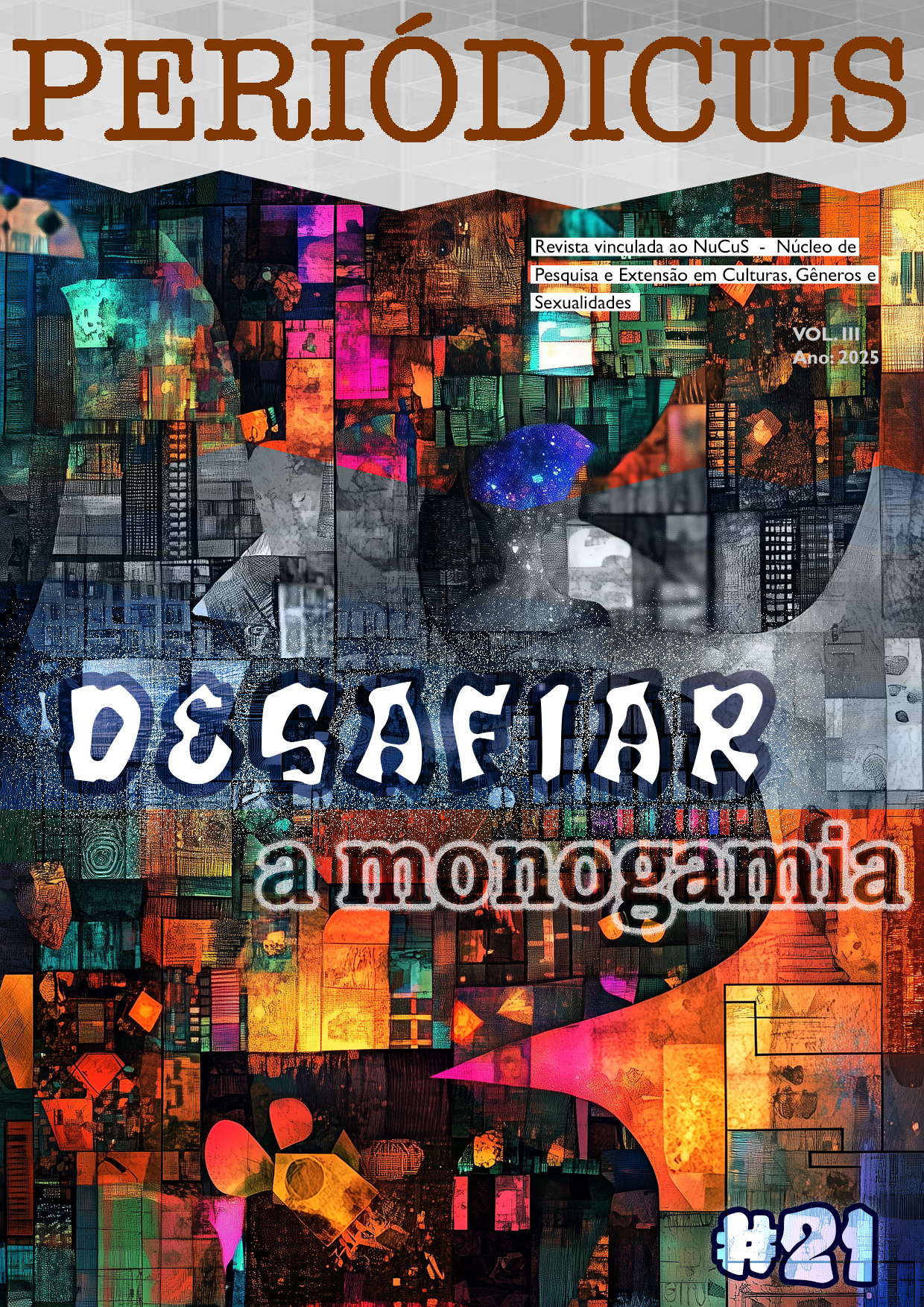Bisexual grammars shaping new demands
biphobia, 'mental health' and suicide
DOI:
https://doi.org/10.9771/peri.v3i21.61261Abstract
Bisexual Studies and movements, as well as investigations in the field of Suicidology, have demonstrated their concerns about impaired “mental health” and suicidal “risk” in bisexual people. Through productions of this kind, the article, on an exploratory basis, calls attention to the emergence of these complaints within bisexual activism. To do so, the scientific “senses” responsible for historically producing “bisexuality” are presented. It also presents how bisexual studies and movements have created and activated a new grammar in order to express their demands. Finally, the provocations focus on the limits and possibilities of this new grammar, that is, on how new categories can produce other perspectives regarding the demands of the bisexual movement regarding “mental health” and suicide.
Downloads
Downloads
Published
How to Cite
Issue
Section
License
Copyright (c) 2025 Breno Rafael da Costa, Vagner Matias do Prado

This work is licensed under a Creative Commons Attribution-NonCommercial 4.0 International License.
Authors who publish in this journal agree to the following terms:
Authors retain copyright and grant the journal the right of first publication, with the work simultaneously licensed under a Creative Commons Attribution Noncommercial License that allows the work to be shared with acknowledgment of authorship and initial publication in this journal, but prohibits commercial use.
Authors are authorized to enter into separate additional contracts for non-exclusive distribution of the version of the work published in this journal (e.g., publishing in an institutional repository or as a book chapter), with acknowledgment of authorship and initial publication in this journal.
Authors are permitted and encouraged to publish and distribute their work online (e.g., in institutional repositories or on their personal website) at any point before or during the editorial process, as this can generate productive changes and increase the impact and citation of the published work (see The Effect of Open Access).








